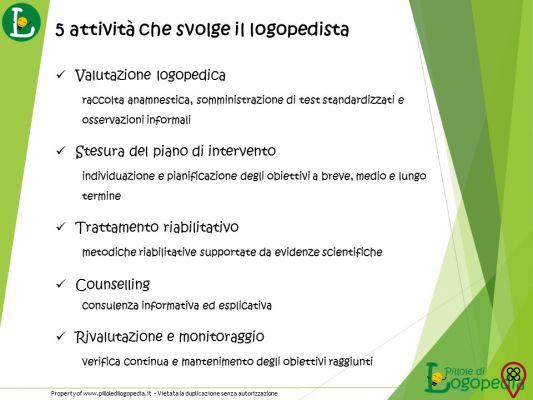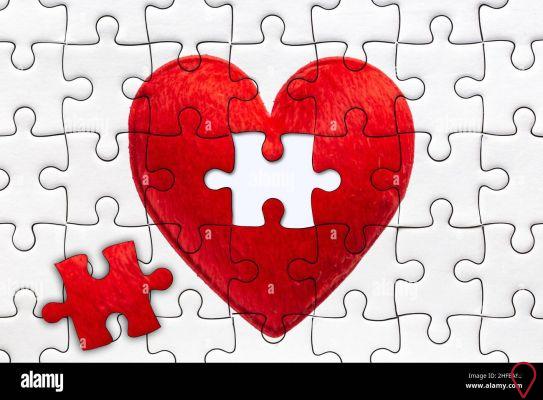Living, despite the good times and the happiness we can feel, is not easy, do you agree? Along our journey, we are exposed to trauma, difficulties, challenges, frustrations, obstacles… These are situations that can be quite negative and can affect our emotional and psychological health. Therefore, it is very important to talk to someone about what we are feeling and experiencing.
But can anyone listen to us, welcome us and help us? You've probably been through the situation of opening up to someone and then regretting having done so, either because you felt even worse after the conversation or because of the way they treated you. That's where therapy comes in, a safe "space" to expose what we feel and with a person prepared to listen, welcome and help. Understand all about therapy and why it's important to do it!
What is therapy?
The word “therapy” can be used for a range of resources that help us deal with our problems, from psychological to spiritual treatments. But when we talk about therapy, we are usually referring to psychotherapy, that is, a series of consultations with a psychologist, who is the professional trained and trained to listen, understand, welcome and help people, regardless of what their problems are. .

Psychology is not an exact science, so there are different types of therapy, each with less or more chances of being ideal for each person, as we are unique in our personality. They say that finding the ideal therapy and therapist is a lot like marriage: there needs to be affinity, trust, and—why not? — affection in the relationship, as this person will deal with your deepest feelings and thoughts.
How does therapy work?
Most psychologists attend weekly, with 50-minute sessions. This treatment varies, because depending on the situation the person is in, more weekly sessions may be useful or necessary, or their duration may be different.
During this session, the patient (there are psychologists who prefer to call him a client) spontaneously exposes his problems, thoughts and feelings. But the psychologist can also encourage him to make this exposure, trying to show nuances that the patient is not realizing about the situations he is living and what he is feeling.

Contrary to what many think, the psychologist is not there to “give advice”. Of course, every now and then he can — and probably will — do that, but, above all, he is there to welcome us and help us deal with situations that cause us discomfort or suffering, among other sensations. Sometimes he will just listen, often he will ask, occasionally he will make suggestions... Above all, he will offer you a safe and reliable space where you can be yourself and talk about everything you think and feel, without fear of being judged and not worrying about feeling guilty or ashamed or anything like that.
Why is therapy good for you?
Have you ever resolved a problematic situation in your life by simply ignoring its existence? Probably not, or very rarely, is it? When we want to solve a problem, we recognize that it exists, we face this nuisance incisively, and then we start thinking about what can be done to solve it, right?
Why do we have such a hard time doing the same with our feelings, thoughts and emotions? It is precisely to provide this space for welcoming and solving our problems and annoyances that therapy arises. During therapy sessions, in which we expose what we think, feel and experience, we get closer and closer to ourselves, which allows us to understand who we are and why we feel what we feel.

Therapy can have several motivations. You can seek therapy to treat a psychological health problem, such as depression and anxiety disorder, but you can also seek it for self-knowledge purposes, to get to know and understand yourself better, or to deal with traumas and emotional pain you don't have. can handle alone or can't even understand.
Like any treatment, therapy is not magic. It can often be painful because you will be vulnerable and you will dive deep into yourself, but it is like the growing pains we feel when we are children and teenagers. After they pass, or when we learn to deal with them, there is a feeling that we grow, learn and evolve.
Who should do therapy?
There is no exact answer to this question — or “everyone” would be the most correct answer. There are cases in which the need for therapy is more obvious, such as in cases of depression or panic syndrome, in which the person is suffering from a clinical condition and clearly needs medical or professional help. But anyone can benefit from therapy, as it is, above all, a process of self-knowledge, from which we come to know ourselves much more and better.

So if you think you can benefit or grow from therapy, don't be afraid or ashamed to start doing it. There are many therapists who work in their private practice (or even online). If you have medical insurance, you can go to a consultation with a general practitioner and ask for a referral to a psychologist. If you cannot afford the costs of a private professional and do not have medical insurance, look for a university that has a Psychology course, because almost all of them offer free follow-up or for a symbolic price.
Alternative therapies
If you are a person connected with spirituality, taking care of only your emotional and psychological may not be enough, because you also feel, of course, the need to take care of yourself spiritually. No type of alternative, spiritual or religious therapy replaces psychotherapy with a trained and trained psychologist, but it can be an adjunct in the process of healing, self-knowledge and well-being.
Attending temples and religious rituals, incorporating meditation and Yoga into your routine, as well as seeking therapies such as Reiki, Acupuncture, Chiropractic, Chromotherapy, among others, can be quite beneficial for your spiritual health. Read about different types of alternative therapies (we have a wide variety of them here on our website) and consider whether one fits your personality and needs.
You may also like
- What are Holistic Therapies?
- 10 Benefits of Psychotherapy for your personal and professional life
- Everything you need to know about therapy
- Know the differences between Psychoanalysis, Psychiatry and Psychology
- Investigating the Nature of Being: I am, beyond the I am
But remember: psychotherapy CANNOT be replaced by any alternative therapy, and no professional without training and certification in a Psychology course can do psychotherapy or promote any type of therapy that resembles it. Don't hand over your vulnerability and trust to someone who isn't prepared to deal with them! Look for serious and prepared professionals.
What's up? Did you understand the importance of therapy? As you can see, anyone can benefit from psychotherapy and use this healing process and self-knowledge to grow and evolve in life. Don't neglect yourself, give yourself that space to explore your inner self. Get therapy!

























